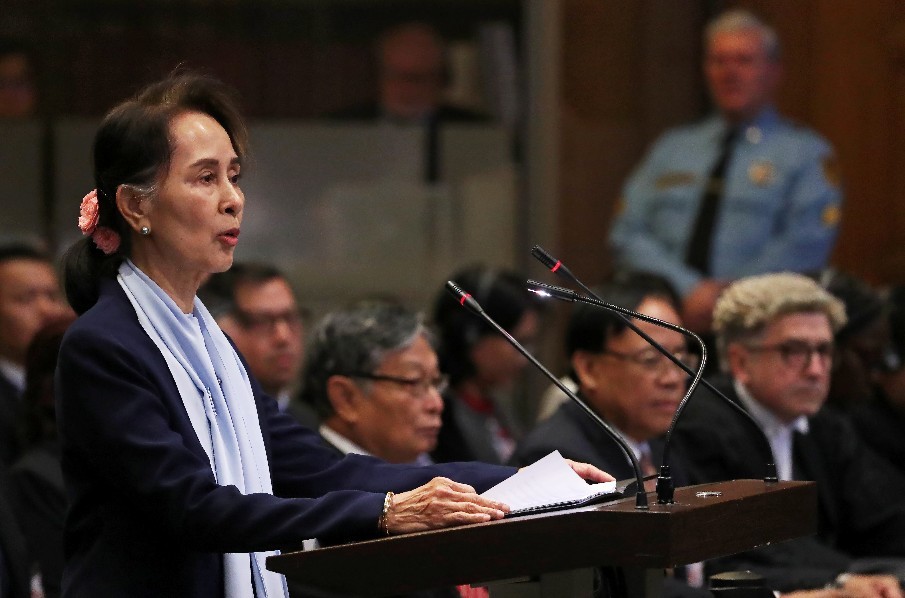Popular Reads
Top Results
Can't find what you're looking for?
View all search resultsPopular Reads
Top Results
Can't find what you're looking for?
View all search resultsICJ to rule next week on urgent measures in Rohingya genocide case
Change text size
Gift Premium Articles
to Anyone
T
he United Nations' top court said Wednesday it will deliver its decision next week on whether emergency measures should be imposed on Myanmar over alleged genocide against its Rohingya Muslims.
The ruling comes a month after Myanmar's civilian leader and Nobel peace laureate Aung San Suu Kyi traveled to The Hague to defend the bloody 2017 crackdown by her nation's army against the Rohingya.
The mainly Muslim African nation of The Gambia brought the case against Myanmar at the International Court of Justice after around 740,000 Rohingya fled over the border into Bangladesh, carrying accounts of widespread rape, arson and mass killings.
"The International Court of Justice... will deliver, on Thursday Jan. 23 2020, its order on the request for the indication of provisional measures made by The Gambia," the court said in a statement, adding that it would happen at 10:00 a.m. (0900 GMT).
The Gambian Ministry of Justice had announced the date on Twitter earlier Wednesday.
The Gambia brought the case against Buddhist-majority Myanmar with the backing of the Organization for Islamic Cooperation. Canada and the Netherlands have since also lent their support.
At the December hearing, The Gambia alleged Myanmar had breached the 1948 UN Genocide Convention, meaning that the case could go before the ICJ, the highest judicial organ of the United Nations.
It also said there was a "serious and imminent risk of genocide recurring" and called for urgent "provisional measures" to prevent Myanmar from committing any further atrocities or erasing any evidence.
It is not clear how specific the emergency measures would be, but enforcing them would likely prove difficult.
If the court rules in The Gambia's favor, this would be just the first step in a case likely to take years.
An estimated 600,000 Rohingya still live in Myanmar's western Rakhine state in what Amnesty International has branded "apartheid" conditions.
UN investigators have said Myanmar's actions amounted to genocide.
Suu Kyi admitted in her appearance before the court that the army may have used excessive force against the Rohingya, but said the case was based on "misleading and incomplete" claims, calling for it to be dropped.
The 74-year-old, once regarded as a rights icon in the West, also said the case risked reigniting the crisis.
ICJ judges have only once before ruled that genocide was committed, in the 1995 Srebrenica massacre in Bosnia.
Suu Kyi's defense of the generals was widely condemned in the West but proved popular at home with a public largely unsympathetic to the plight of the Rohingya.
Myanmar insists its own investigations will ensure accountability for any human rights violations but critics deride the domestic panels as toothless and partial.
Myanmar also faces other legal challenges over the Rohingya, including a probe by the International Criminal Court – a separate war crimes tribunal – and a lawsuit in Argentina which notably alleges Suu Kyi's complicity.







